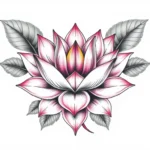As a country grappling with sexual repression, China faces unique challenges in the development of its LGBT culture, particularly in the realm of Chinese lesbian movies. This top-down cultural suppression significantly hinders the growth and expression of lesbian narratives within the nation.
However, regions like Hong Kong and Taiwan stand out with their cultural openness and diversity. They have become vital epicenters for creative exploration in Chinese lesbian movies, contributing significantly by portraying a wide range of experiences and emotions.
Article Content
This article showcases a carefully selected compilation of 18 remarkable Chinese lesbian movies. Most film is presented with their YouTube trailer, offering a valuable resource for those delving into the world of Chinese lesbian movies.
1. Intimates (1997)

The film portrays a dynamically complicated, resilient, and distinctly feminine sort of love. In stark contrast to the story’s more fragile depiction of male love, a jade pendant, a sack full of sour gourds, and feathers softly wrapped in ointment all symbolize the tender yet unyielding nature of a woman’s love.
Liu Jialing sets a new standard for characters of this nature in Eastern cinema with a stunning performance that rivals that of Cate Blanchett.
In the Chinese lesbian movie, Liu Jialing’s character is presented as being intensely passionate, while Yang Caini’s character symbolizes stability, like water.
Liu Jialing’s character Yuhuan deftly navigates the small things in life while daring to go headfirst into love despite the risks to herself. When Yuhuan starts to comprehend that her husband has been manipulating her, and how she transitions from shock to acceptance, are some of the most memorable scenes in the movie.
Another scenario that sticks in your memory is when Yihuan (Yang Caini) has a self-induced abortion and alternates between being calm and exploding with emotion.
2. Peony Pavilion (2001)

Peony Pavilion is a 2001 Hong Kong Chinese lesbian movie directed and written by Yang Fan, featuring the talented Joey Wong and Rie Miyazawa.
The story features three songs from the Kun Opera “Peony Pavilion” – “A Journey to the Garden”, “A Dream of Fright”, and “The Search for a Dream”.
This movie captures the timeless elegance of classic Chinese cinema. The smooth, song-like flow of this piece not only complements the theme but also adds a stunning visual element, indicative of a living oil painting.
The Japanese actress Rie Miyazawa truly shines in her role. The movie is elevated by Joey Wong’s compelling performance and Brigitte Lin’s captivating voiceover.
The film is a masterpiece, evoking a significant and sorrowful emotion. You won’t even consider switching it off or finding another show to watch.
3. Miao Miao (2008)

This Chinese lesbian movie explores the complexities of love, delving into various relationships: a girl’s love for another girl, a girl’s love for a boy, and a boy’s love for another boy.
It begins with the usual LGBTQ movie but evolves into a deeply moving experience. The acting is truly exceptional, particularly Sandrine Pinna’s performance.
The most moving part occurs towards the conclusion, featuring a lengthy scene of her running, accompanied by the poignant song ‘The Meaning of Travel’.
This moment perfectly conveys the essence of youth, as if time stood still at seventeen.
4. Blue Gate Crossing (2002)

This film transcends its confines as a same-sex narrative. The discussion here is not primarily concerned with the dynamics of same-sex or opposite-sex partnerships.
Instead, it digs inside teenagers’ minds to examine their thoughts, worries, and anxieties.
The narrative encapsulates the spirit of unresolved youth perfectly: the vacillating sentiments of desire, sometimes toward a friend and other times toward someone a friend finds attractive.
It portrays a stage of life marked by innocence and perplexity about sexuality rather than offering a thorough analysis of sexual orientation.
5. Spider Lilies (2007)

I was initially captivated by this film due to its complex plot and the compelling portrayal of Isabella Leong’s character. As I observed, Rainie Yang’s character and the story as a whole truly fascinated me, particularly due to its profound themes.
‘Spider Lilies’ goes far beyond being just an LGBTQ love story. The stories presented are deeply interconnected, creating a captivating and unforgettable experience.
The film delves into the intricacies of human vulnerability. It reveals the various ‘rituals’ we engage in throughout life, often without realizing it.
These rituals are crucial for navigating life, recovering from pain, and keeping going. The tattoo in the Chinese lesbian movie connects the characters and symbolizes the fragile parts of our souls.
6. Who’s the Woman, Who’s the Man (1996)

This Chinese lesbian movie delves into a wide spectrum of LGBT themes while thoroughly examining gender difficulties. This strategy can occasionally come out as unduly complex, even overshadowing the existence of straightforward heterosexual partnerships.
However, the film’s humorous elements add a further layer of interest. Three major characters—two women and one man—who create three fascinating couples, are at the center of the narrative.
Leslie Cheung comes upon a couple in a really comical and awkward scenario, and that scene sticks out. Li Qi Hong and Jordan Chan’s side narrative is a lovely addition that infuses a distinct sense of humor.
The movie explores various sexual relationships in order to give it an authentic feel. In order to further enhance the plot, it also alludes to another cross-dressing comedy, “Farewell My Concubine.”
7. Butterfly (2004)

Like a butterfly emerging from its chrysalis, Flavia’s lesbian desire is rekindled following a fortuitous meeting with a free-spirited singer/songwriter.
The novel The Mark of the Butterfly by Taiwanese author Chen Xue served as the inspiration for the screenplay. The film, which was directed by the heterosexual Yan Yan Mak (Gege, 2001), is recognized as the first notable lesbian film in Hong Kong.
Butterfly is a compelling movie that deftly combines a 1989 love tale with the difficulties its lead character is currently facing as a wife and mother.
8. Saving Face (2004)

The iconic lesbian film features my all-time favorite Asian lesbian duo, Xiao Wei and Vivian, who have an immensely romantic and tangible relationship. This film is also one of the most classic Asian lesbian movies. The Chinese lesbian movie’s theme is deftly handled to maintain attention without being too serious.
Wu Siwei’s directorial talent shines through in this picture, which continues to have a greater impact years later than many other recent works in the same genre.
It tells the story of a straight mother who finds liberation via her gay daughter after years of being constrained by her husband’s patriarchal views.
However, despite her mother’s initial resistance, the daughter—who had previously hidden her true identity—comes to grips with it.
This narrative does an excellent job of exploring the topics of close friendships and female empowerment.
9. Love’s Lone Flower (2005)

This show is primarily a TV series, but it’s worth mentioning due to its portrayal of lesbian characters in China, which is a rarity. It tells a complex, significant story.
The music is incredibly appealing, creating a strong emotional connection to the experience. The series, directed by Tsao Jui-yuan, is based on a story by Pai Hsien-yung.
It reveals a profound truth: in a world where power dynamics often favor men, lesbians can face additional challenges compared to gay men, intensifying an already difficult situation.
10. Candy Rain (2008)

This movie expertly captures the complexities of love, exploring the various emotions that come with it: the joy of togetherness, the pain of breaking up, and the challenges of being in a relationship that lacks happiness.
Each character in the film is on a quest for love, each in their own unique way. However, their ultimate desire remains the same – to find enduring happiness and joy.
Watching this Chinese lesbian movie was truly remarkable for me, perhaps because I’ve never encountered a film on this particular subject matter before.
The characters in the story were incredibly courageous and genuine, which deeply touched me. They highlight the significance of staying authentic to oneself. I believe that everyone should see this movie because of the real and heartfelt stories it presents.
11. Drifting Flowers (2008)

With an air of self-assurance, she gracefully held her hand, displaying the maturity that comes with age. Later in life, when confronted with change, she takes a step back and allows a man to take her place.
As she grows older, she gains a deeper understanding of her true feelings and discovers the person she loves.
This Chinese lesbian movie weaves together three seemingly unrelated stories, revealing their complicated connections. This piece is sincere, filled with emotion, and expertly crafted.
This highlights the profound stories of LGBTQ movies, encouraging us to approach them with empathy and an open mind.
12. Two Stage Sisters (1964)

The dynamic between the two main women in the movie is truly captivating. It’s difficult to determine if their relationship is purely informal or if there’s a deeper connection between them.
The film effortlessly combines a dark, intriguing style with the dramatic essence of traditional opera.
The story is conveyed primarily through visual elements rather than auditory ones. This film goes far beyond the surface level in its exploration of LGBT themes.
The portrayal of the female characters by the director is captivating and multi-dimensional. He excels in portraying the character Shangguan Yunzhu, revealing her depth through a limited number of scenes.
13. Maiden Work (1997)

Upon beginning this Chinese lesbian movie, my initial expectation was that it would fall into the genre of drama. However, the initial indications hinted at something bold, only to reveal itself as an experimental documentary!
The movie cleverly blends two storylines, blurring the line between drama and documentary.
One notable aspect is its handling of same-sex relationships. The final song, set against the backdrop of war scenes and impactful pictures carries a profound and artistic significance.
The second half of the film provides a captivating view into the inner workings of the film industry, resembling a documentary on the process of making movies.
14. Fish and Elephant (2001)

Li Yu’s film delves into the complex relationships between women and men, exploring the ways they conflict, depend on each other, or lead separate lives.
It’s truly impressive how she managed to create such a compelling film, especially considering the use of non-professional actors who skillfully portray the characters’ emotions and aspirations.
Li Yu, at the young age of 26, impressed the judges at the Venice Film Festival with her debut film, winning the highly coveted Elvira Notari Prize. This achievement showcases her exceptional talent in the world of cinema.
Her storytelling reflects her extensive background as a TV host and documentary director. She excels at revealing the intricate and unusual connections within films such as ‘Dam Street’, ‘Lost in Beijing’, and ‘Buddha Mountain’.
Li Yu’s storytelling prowess sets her apart from many renowned directors of her era.
15. Murmur of Youth (1997)

This film captivates you with its calm pace and attention to every little detail, illustrating emotions that grow naturally. At first sight, it may appear straightforward, but there are intricate layers beneath the surface.
It truly captures the essence of life, encompassing the joys and challenges of youth, and the transformations that accompany development. This movie goes far beyond being just a simple experience, as it truly evokes deep emotions within you.
There is some uncertainty among reviewers regarding the categorization of this film as a lesbian film. They may perceive it as a narrative exploring the diverse journeys individuals embark on as they mature.
However, it is worth examining the movie closely, particularly its conclusion, as there may be deeper layers of meaning that go beyond initial impressions.
16. The Girl Dances (2002)

This film delves into the profound connection and emotions shared between two young girls.
It wonders: Can their love transcend mere friendship? How intense can their emotions become?
The film employs a serene and comforting style commonly found in Taiwanese cinema, which truly connects with the audience on an emotional level. The story revolves around a blossoming love that begins at the tender age of 16.
It hints at a crucial moment where the return of a certain girl in that important year becomes a catalyst for their relationship to continue.
17. The Big Road (1934)

This film stands out for its departure from typical gender stories. The Chinese lesbian film includes scenes that today’s viewers would interpret as representing diverse sexual orientations.
Nie Er’s music truly elevates the movie, infusing it with a lively vibe that transcends the silence of the film.
This film pioneers the portrayal of gay and lesbian relationships with a nuanced approach.
Director Sun Yu, with his extensive experience in the United States, brings a worldwide view to his films. He effortlessly blends various cultural influences with his unique perspectives on society.
18. The Message (2009)

This spy thriller is absolutely incredible. This story is filled with excitement, suspense, and surprising turns in the plot.
The filming and music are truly remarkable. What is truly impressive is the exceptional acting displayed by the entire cast, including those in minor roles.
Li Bingbing’s performance at the Golden Horse Awards was truly deserving of her Best Actress award. Her portrayal of Li Ningyu is truly remarkable, capturing the depth of emotions and the nuanced shifts in personality.
The film also fearlessly showcases unusual torture scenes and refers to themes of same-sex relationships. The conclusion is incredibly moving and conveys a profound message that deeply resonates with the audience.
From “Invisible” to “Underground”, the 1990s marked a significant turning point in the evolution of Chinese-language gay and lesbian cinema. Before that, gay and lesbian movies in China, including Hong Kong and Taiwan, were mostly marked by a culture of silence and secrecy.
In the 1990s, Hong Kong and Taiwan led the way in creating a wave of gay movies that have had a profound influence on cinema. An excellent illustration of this is the highly acclaimed and artistically profound film “Spring Breakers,” directed by Wong Kar-wai.
Given the exponential expansion of China’s film and television industry, there is a surging curiosity surrounding Chinese lesbian movies, as individuals eagerly await their transition from obscurity to the mainstream.








